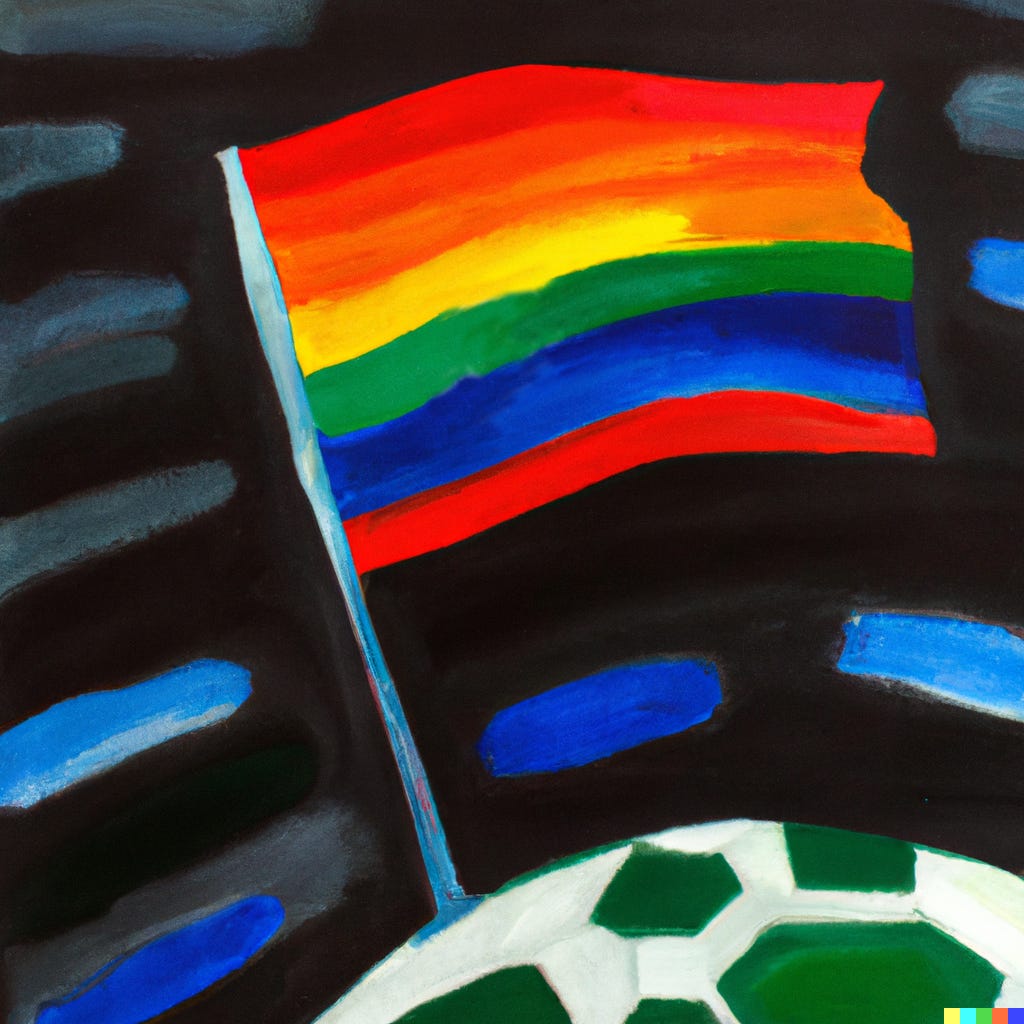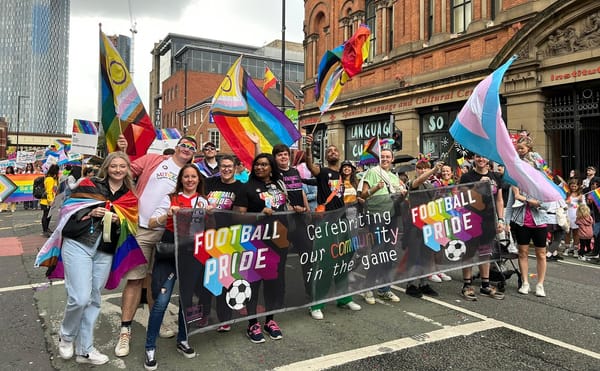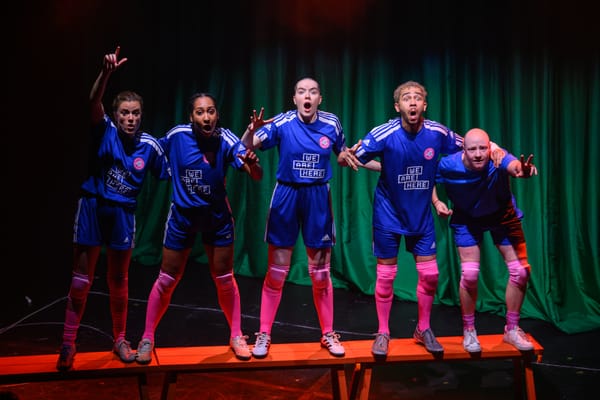Here’s how straight people can help make football more welcoming to LGBTQ+ people
A little guide.
I think far too often, we in the queer community just assume that people know what the problems are and know how they can help. We shouldn’t.
So this week’s email is written for straight people. And how they can help change football for the better. Some of it might be obvious, but hopefully some of it is not.
This week, more than ever, it’s important to share this newsletter with a friend or two. It’d be amazing if we can make this go as far as possible.
Enjoy.
Adam
It’s best, in life, to not be a dick. So don’t be one. That’s the main crux of this.
If you’re here as a straight person reading this, you’re probably not the problem. You’re probably not homophobic or transphobic. But you might underestimate the power you have to make a difference. So here’s a few pointers on how you might open football up for LGBTQ+ people.
Watch your language
No one wants to be a fun sponge. Part of what makes football football is the fiery atmosphere and we can’t lose the raw emotion that powers that.
But you think about the language you use and cut words like “poof” from your football vocabulary without losing the passion and fire that makes the game so special. And there are songs that we all already know aren’t acceptable – including anything that uses the phrase “rent boy” – so just stop singing them.
While you might not see the problem with some of the things you shout (or think you get a free pass because it’s football “banter”), by cutting out the worst language, you could make the difference in helping LGBTQ+ people understand that football is for them, too.
As a football fan, you become desensitised to the language used at games – and it can be impossible for us to see how it might make people who aren’t used to it feel. That includes LGBTQ+ people.
You have a choice: you can either change your own behaviour to help include others, or you can hold on to a part of the game that makes it more hostile to marginalised groups.
And surely, in 2023, you can find more inventive things to shout at your least favourite player.

Call it out
Hearing abuse is part of going to a football match. But if you think someone’s going too far, don’t leave it to others to step in. In the last six months, there’s been an increase in homophobia at football grounds hitting the headlines, so it’s obvious that there is a problem with it in the English game. You can help.
It can be intimidating to take people to task, but if you feel confident enough to do so, it can be one of the most effective ways to make a difference because fans are likely to listen to other fans.
But if you don’t feel safe to do so, there are other ways to speak up too. You can report abuse through Kick It Out on the web, on social media, by phone, by email, or through their app.
Invite people in
Many LGBTQ+ people have written football off because of bad experiences or assumptions (often justified) about how inclusive the game is. Without being invited in, they won’t necessarily even think to give it a go.
But you can be the friend that invites your gay mate to watch a game at home with you and your pals. You could be the one to explain the complexities and nuances of the game in an environment where people don’t feel pressured or judged.
Just ask if they fancy it. You might get them hooked.
Send a signal on social media
When my club, Burnley, tweeted out support of the Rainbow Laces campaign last year, one of the first replies was from someone who said “I am disgusted.” Another replied with “👎👎👎👎”. Another said, “Ewwww end this disgusting campaign.”. “LGBTQ shame,” read another.
That’s what we’re up against.
So it’s vital that everyone who isn’t stuck in the 19th century uses their voice to support initiatives like Rainbow Laces. Be an ally, join the club, it’s cool, we have t-shirts and everything.
Tweet out your support. Give that Instagram post about the campaign a like. Use your voice for good.
It’s possible for football to be inclusive but LGBTQ+ people can’t do it alone. We need straight allies.
So share this guide with a friend or two. Start thinking about how you could make a difference.
Homophobia exists in football. But together, we can chip away at it.



